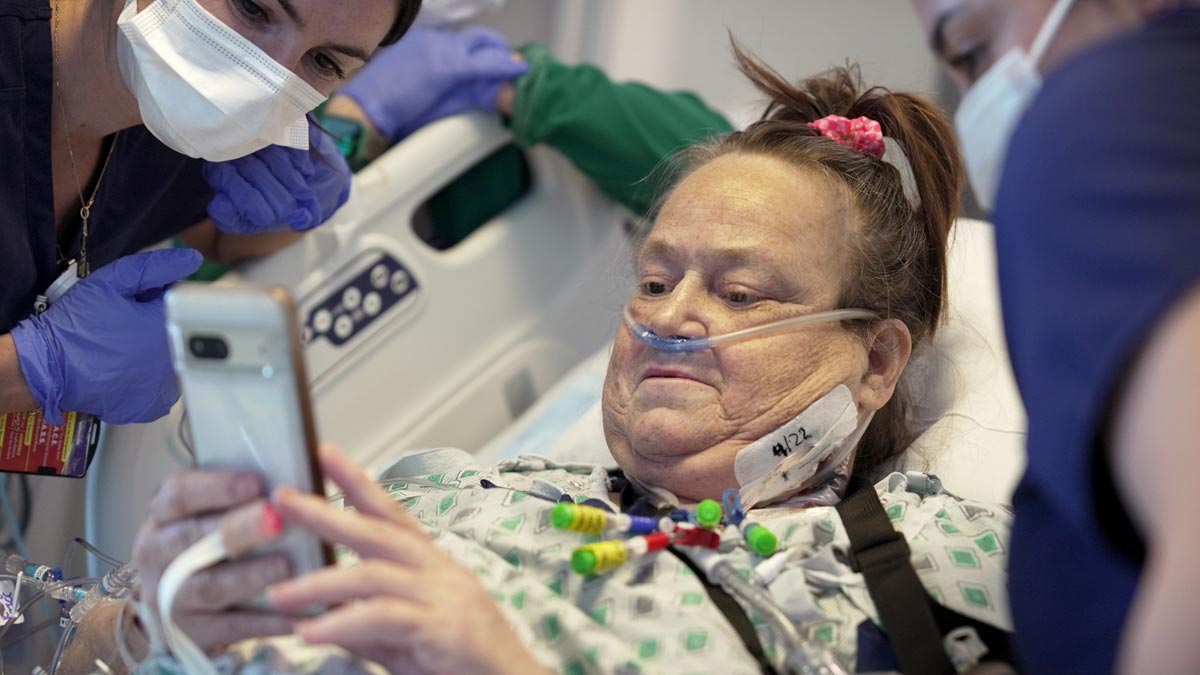
A groundbreaking medical case has ended in sorrow as Lisa Pisano, a 54-year-old woman from New Jersey, passed away nearly three months after receiving a transplanted gene-edited pig kidney. This pioneering surgery, performed by NYU Langone Health in New York, marked a significant advancement in the field of xenotransplantation— the practice of transplanting organs from one species to another. However, Pisano’s journey highlights the immense challenges and risks associated with this emerging medical frontier.
Table of Content:-
The Procedure and Immediate Aftermath
Lisa Pisano, who was suffering from both kidney and heart failure, underwent the transplant on April 12, 2023. This operation was unique as it combined two advanced medical technologies: a gene-edited pig kidney and a mechanical heart pump, the latter implanted just eight days before the kidney transplant. According to surgeons at NYU Langone Health, this was the first instance where both technologies were used in a single patient. Despite the groundbreaking nature of the surgery, complications arose that eventually led to the removal of the transplanted kidney on May 29 due to poor blood flow, a consequence of the medications administered for her heart condition.

Experimental Transplants and Their Implications
The pig kidney transplant performed on Pisano was part of an experimental approach approved under the FDA's expanded access program, which allows the use of unapproved medical products for patients with life-threatening conditions. This procedure followed an earlier transplant involving Richard Slayman, a 62-year-old man who was the first person to receive a gene-edited pig kidney at Massachusetts General Hospital in Boston. Slayman, who initially showed signs of improvement and was discharged from the hospital, unfortunately passed away nearly two months post-surgery. Both Pisano and Slayman’s cases underscore the critical importance and complexity of these experimental procedures.
Also Read: Health Trends That Are Defining The Year 2024
The Scope and Significance of Kidney Transplants
Kidney transplants are highly sought after, with nearly 90,000 people on the national waitlist, according to the National Kidney Foundation. The demand for kidneys is immense, driven by rising rates of end-stage kidney disease, which are predicted to increase dramatically in the coming years. Pisano’s case highlights the severe shortage of human organs available for transplant and the potential for xenotransplantation to fill this gap. Her ineligibility for a human kidney transplant due to high levels of harmful antibodies in her system made her an ideal candidate for this experimental procedure, providing crucial insights for future advancements in the field.
The Science Behind Gene-Edited Pig Kidneys
The pig kidney transplanted into Pisano was developed by United Therapeutics Corp. and involved sophisticated genetic modifications. The kidney was engineered to lack the gene responsible for producing alpha-gal, a sugar that triggers immune reactions leading to organ rejection. Additionally, the transplant included the pig’s thymus gland to further prevent rejection. These genetic alterations are designed to make pig organs more compatible with the human body, reducing the likelihood of rejection and paving the way for future advancements in xenotransplantation.
Also Read: Health Dept Steps Up As Cholera Outbreak Hits Private Care Home In Kerala
A Legacy of Bravery and Hope
Dr. Robert Montgomery, director of the NYU Langone Transplant Institute, commended Lisa Pisano’s bravery and her significant contribution to medical science. He emphasized that her willingness to undergo this experimental procedure offered hope to thousands of patients with end-stage kidney or heart failure. Pisano’s case, despite its tragic outcome, represents a critical step forward in the pursuit of alternative organ sources that do not require a human donor. Montgomery’s remarks reflect the broader sentiment within the medical community about the potential of xenotransplantation to revolutionize organ transplantation.
The Future of Xenotransplantation
Lisa Pisano’s story is a testament to the pioneering spirit of medical research and the unyielding pursuit of solutions to critical health challenges. Her contribution to the field of xenotransplantation has brought the medical community closer to realizing a future where organ shortages might be significantly alleviated through the use of genetically modified animal organs. While the road ahead is fraught with scientific, ethical, and medical hurdles, each case like Pisano’s provides invaluable data and insights that drive the field forward.
Bottomline
The passing of Lisa Pisano is a poignant reminder of the complexities and risks involved in pioneering medical treatments. Her legacy, however, is one of hope and progress, symbolizing the relentless quest for innovations that can save lives. As the field of xenotransplantation advances, her story will undoubtedly inspire continued efforts to make this groundbreaking technology a viable and safe option for patients worldwide.
Also watch this video
How we keep this article up to date:
We work with experts and keep a close eye on the latest in health and wellness. Whenever there is a new research or helpful information, we update our articles with accurate and useful advice.
Current Version